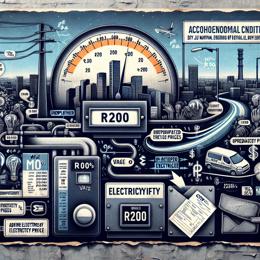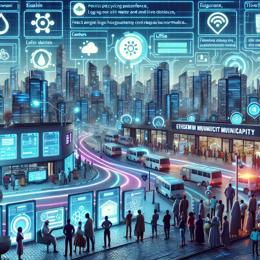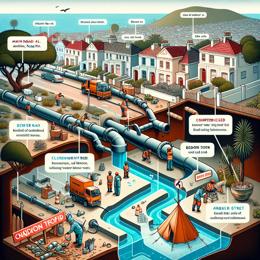Image created by AI
Unpaid Electricity Bills: Johannesburg's Schools and Hospitals Top Defaulters List
City Power, Johannesburg’s primary electricity provider, is facing significant financial challenges as a substantial number of schools and hospitals have fallen behind on their payments, exacerbating an already critical debt situation. City Power reported that these two sectors are among the biggest defaulters, posing a threat not only to their own operations but to the sustainability of the power utility itself.
The utility is contending with a massive four billion rand debt pile, an accumulation of unpaid electricity bills from various customers, including residents, businesses, and notably, government departments. As the debt grew, City Power responded by enforcing power cutoffs in certain areas, sending a strong message about the consequences of non-payment in a city already grappling with electricity supply challenges.
One of the stark reminders of this clampdown happened recently when the power was cut to a Damelin campus located in Braamfontein, leaving it without electricity due to nearly three million rand owed to City Power. This move highlights the power utility's intent to tackle defaulters head-on, irrespective of their nature or the essential services they provide.
The pattern of defaulting extends to some government departments situated within the Johannesburg CBD, which play a significant role in mounting debts owed to the metropolitan power supplier. These overdue accounts have led City Power to consider various avenues to recover the debt, including cutting off power to non-paying customers.
The most notable and precedent-setting case was when City Power threatened to sever electricity to the Charlotte Maxeke Academic Hospital, whose debt at the time was reported to be over 40 million rand. This indicated a severe breakdown in payment discipline that extends to critical healthcare facilities, emphasizing the deep-rooted issue of non-payment across different sectors within the city.
City Power has expressed concern over the fact that state-owned entities are among those failing to fulfill their payment obligations for services rendered. The current financial strain on the utility creates a ripple effect, impacting not only their operations but also the reliability of the electricity supply for paying customers.
As a result of the aggressive debt collection drive by City Power, five more businesses were recently left without electricity for failing to settle their outstanding bills. This action serves both as a warning and as an indication of the power utility's resolve to address the deteriorating payment culture and restore fiscal health to the organization.
City Power’s crackdown on defaulters has sparked discussions surrounding the management of utilities and the consequent effects on essential services such as education and healthcare. It also raises questions about the role of government oversight in ensuring that state-funded institutions comply with their financial obligations.
City Power's predicament reflects a broader challenge facing many utilities in South Africa, where revenue collection is vital for maintaining infrastructure and ensuring sustainable electricity supply. The utility's battle is not only with ensuring that lights stay on but also with instilling a culture of prompt payment to maintain its financial viability.
With a stringent stance on defaults, City Power continues to pursue its debt collection efforts, which are crucial for the utility's survival and the continuation of services to all its customers across Johannesburg.










